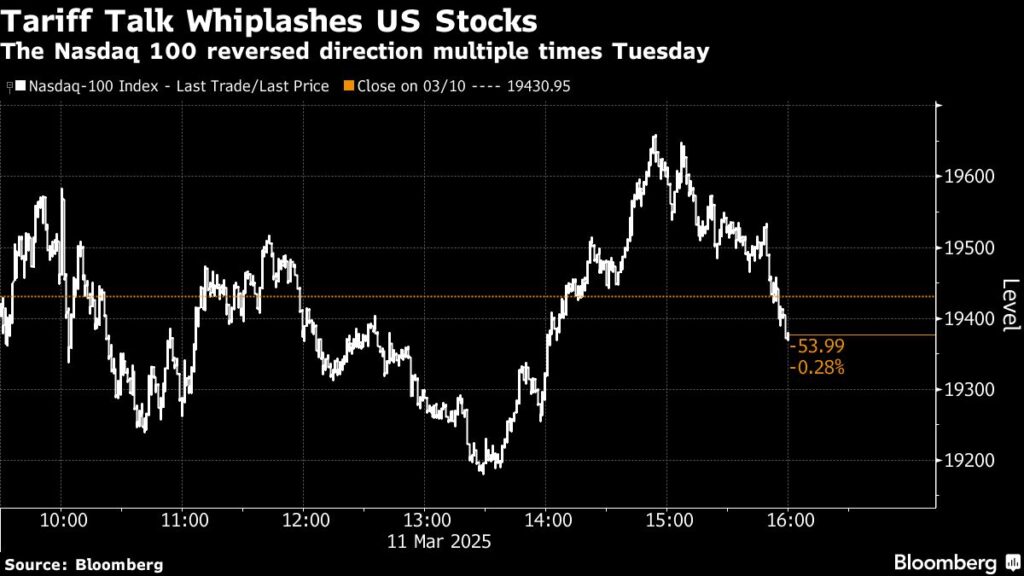(Bloomberg) — It was just after 10 a.m., a half hour after the opening bell, and the S&P 500 Index had started to steady from the fear-induced selloff that swept across Wall Street on Monday.
Most Read from Bloomberg
It was then that President Donald Trump took to Truth Social and fired off another broadside in his trade spat with Canada, jolting traders and sending stocks lurching downward again.
“No one is blinking on the trade war yet and that’s troubling to our clients,” said Jamie Cox, managing partner at Harris Financial Group. “The market thought Trump was bluffing. Now we’re living through the difficulties of it.”
Just 50 days into Trump’s second presidency, a new reality seems to be settling in: The billionaire reality star who has promoted his own gospel of wealth — and during his first term predictably watched the stock market as a barometer of his success — isn’t concerned this time around. In fact, it seems like he may be willing to sacrifice the bull market — and, in the short-term, even the growth of the economy itself — to upend a global order he says has served America poorly for decades.
“Senior leaders are talking about transition periods and that is making people very nervous,” R.J. Grant, global head of equity trading at Stifel Nicolaus. “It seems like there’s going to be more pain before we have better growth again. This is all bleeding into the market.”
It’s made for a dizzying spell for traders who’d ridden the artificial-intelligence euphoria and swelling corporate profits to one of the strongest runs since the 1990s internet boom.
In just a few short weeks, it’s given way to a virtually non-stop churn of volatility fueled by the chaotic rollout of Trump’s plans in all-capped social media posts or television appearances. Tuesday was no different: By late afternoon — as stocks pared losses on the prospects of a cease fire in Ukraine — Trump said he was reconsidering the Canadian tariff hikes he called for just a few hours earlier.
Some have turned to gallows humor to deal with the exhausting, back and forth: “I should have listened to my mother and become a doctor,” said Eric Diton, president and managing director of the Wealth Alliance.
Peter Tchir, head of macro strategy at Academy Securities, sees Tuesday’s choppy session as little reprieve. “I’m treating this like the Great Financial Crisis or European debt crisis,” he said. “I think we get a chance to have a small bounce, but I’m beginning to think we might have 20% downside from here.”
Story Continues


